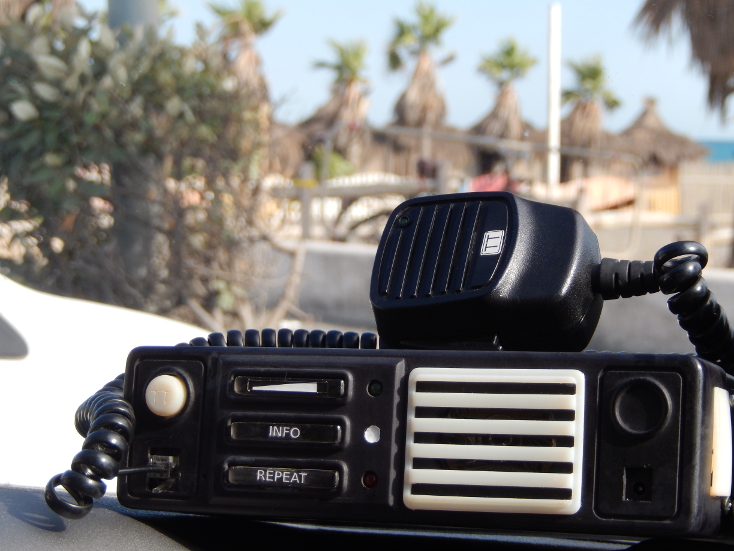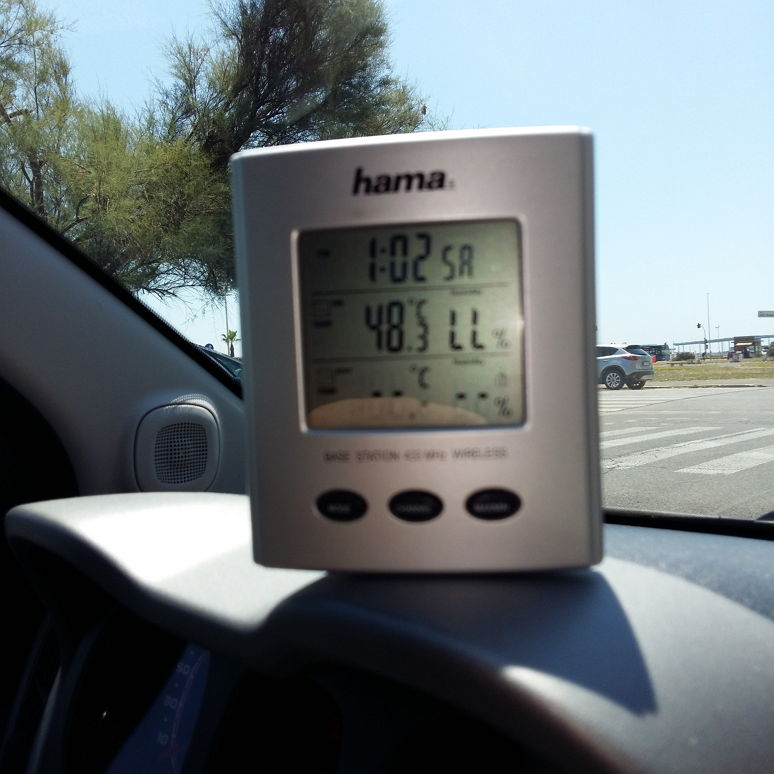
Moving to the other city to the other country and is very time consuming. And, of course, is exciting. Especially if “the other city” is the Eternal City. Any movement is also distracting, but we are strong 🙂 So, despite the traditional Italian vacation time, we are trying to work. August is hot this year, and people run to the seaside. But we are already here and ready to take full advantage of the ardent heat.
If you can remember, once upon a time, we tested our very first prototype in the really harsh conditions of Siberian winter. Now we have reincarn ation number 3 of that prototype, and it’s time to trial it under the Southern sun. The conditions appear harsh enough, too, but in the opposite sense. The terminal was subject to temperature extremes up to +55 Celsius (131 Fahrenheit). The temperature inside the black metallic enclosure was 10-20 degrees more. During the test time, the built-in audit system recorded the slightest failures in the network connection, in the electronics and embedded firmware.
ation number 3 of that prototype, and it’s time to trial it under the Southern sun. The conditions appear harsh enough, too, but in the opposite sense. The terminal was subject to temperature extremes up to +55 Celsius (131 Fahrenheit). The temperature inside the black metallic enclosure was 10-20 degrees more. During the test time, the built-in audit system recorded the slightest failures in the network connection, in the electronics and embedded firmware.
We have got a lot of data, most of which we still have to process, but we have first interesting results.
Spoiler: most of the tests completed successfully, clearly confirming the advantages of the TreeTalk terminal over conventional and trunked radios in the reliability and quality of the voice and in the convenience of handling.
Contrary to expectations, the extreme heat itself did not effect electronics much. But we could mark, thanks to specific environments, two peculiarities.
First one is an unstable data transfer speed of the local mobile carrier. Despite the fact that the signal almost did not disappear anywhere at all, the real data transfer speed varied in the wider range, then we use to see earlier, and the frequency switched from 3g to 4g and back more often. Perhaps, this effect is tied to uneven distribution of tourists (and their smart phones). Fortunately, our specially developed protocol, and speech-compression technology was made for working in low-speed second-generation networks. So, “LTE tourist challenge” was not a problem for our device.
 Also, we found, that stability of geo-positioning was not as good as always in the narrow streets and small squares of the old Rome center. Sometimes, the majority of satellites became invisible to the GPS antenna, and precision of geo-positioning deteriorated. It seems to me, we finally unraveled the reason for the mysterious disappearances and quantum leaps of Roman buses on the maps of transport applications 🙂
Also, we found, that stability of geo-positioning was not as good as always in the narrow streets and small squares of the old Rome center. Sometimes, the majority of satellites became invisible to the GPS antenna, and precision of geo-positioning deteriorated. It seems to me, we finally unraveled the reason for the mysterious disappearances and quantum leaps of Roman buses on the maps of transport applications 🙂
Quite seriously, we anticipated this issue and evident solution will be to try using the geo-positioning chips that have real-time multi-system tuner, instead of a multi – system tuner, working in the switching mode. Perhaps, we should also slightly tune the predictive algorithm in order to make it more intelligent in the such cases. All these improvements will be done in the next version of the hardware. We hope that the next version of the terminal will be even more robust.